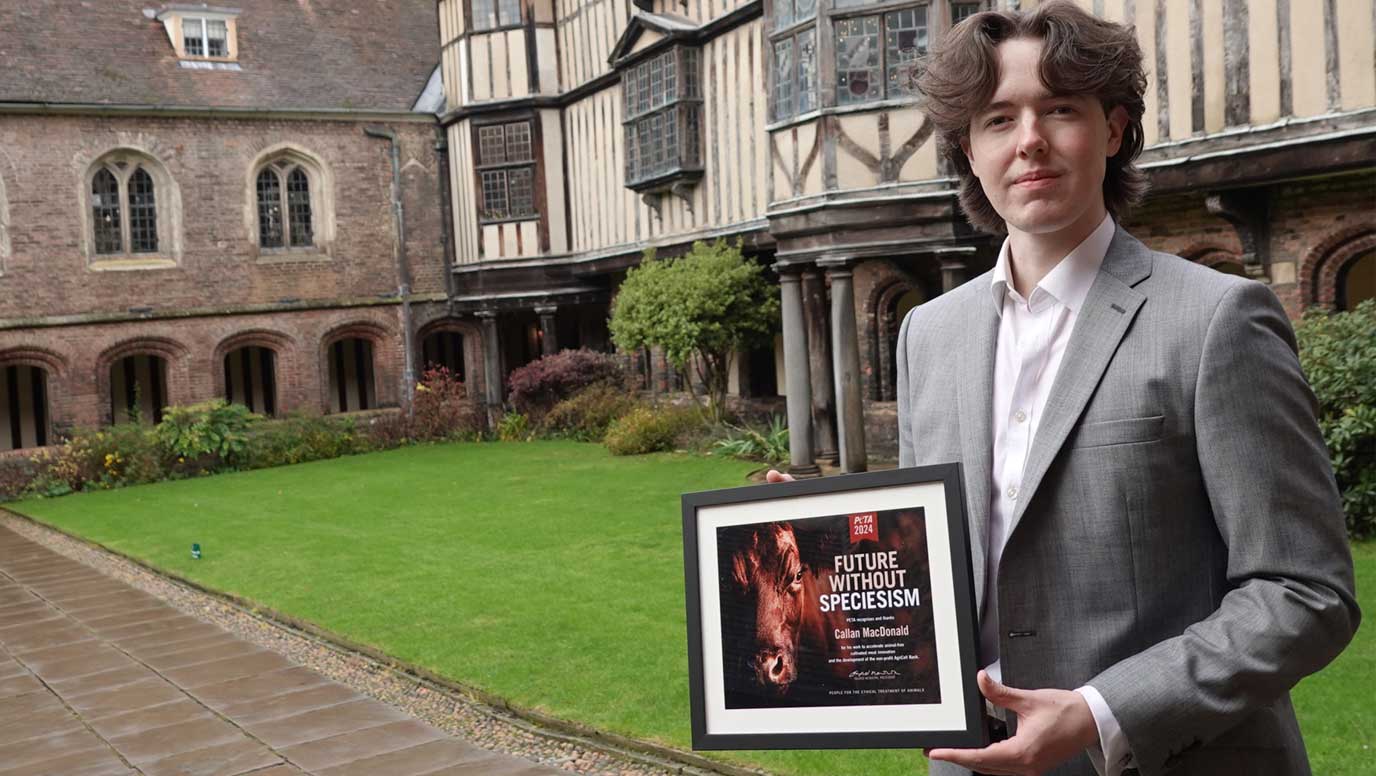Cambridge student’s animal cell invention targets $14bn lab-grown meat market

MacDonald, who studies at Queens’ College, Cambridge, received $2,500 for his winning invention ‘AgriCell’ – a first-of-its-kind cell bank to archive and preserve the most advanced primary cells for meat cultivation.
In the absence of a reliable repository of high-quality animal cells that can be grown at an industrial scale, lab-grown meat developers kill animals in the hopes of finding cells that might work. This unpredictable process is a significant stumbling block for the cultivated meat industry.
MacDonald’s nonprofit organisation intends to acquire and supply cells – which are genetically identical and capable of infinite replication – to academic and private laboratories developing new cultivated meat products without killing additional animals.
Market researchers predict the global cultivated meat industry could be worth nearly $14 billion by 2043.
“Callan’s groundbreaking work puts lab-grown meat one step closer toward market viability without animal suffering,” says PETA UK Science Advisor Jeffrey Brown. “PETA has long championed cultivated meat and we’re delighted to recognise AgriCell as a critical safety net for animals.”
PETA – whose motto reads, in part, that “animals are not ours to eat” – opposes speciesism, a human-supremacist worldview.

